
20 minute read
IT’S THE BEST FEELING IN THE WORLD
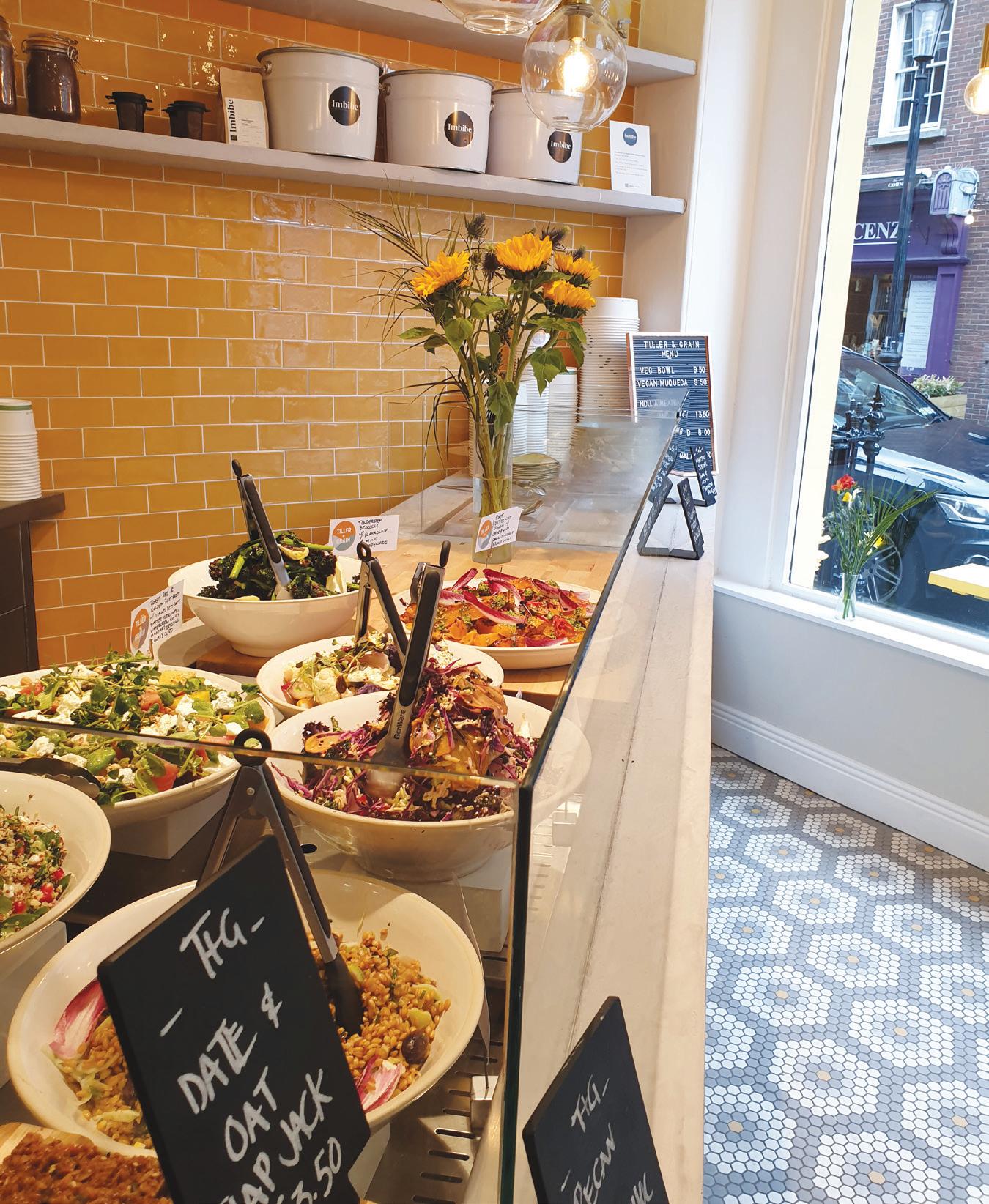

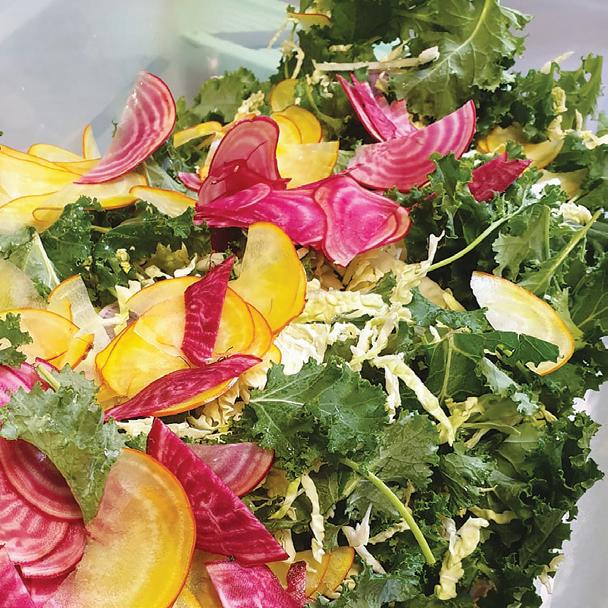
What’s it like opening a café in today’s marketplace? With a year under her belt, Clair Dowling of Tiller + Grain spoke to Denise Maguire about the ups and downs of running a business in Dublin’s city centre J ust over a year ago, ex-surveyor turned chef Clair Dowling opened Tiller + Grain on Dublin’s South Frederick Street. It has, says Clair, been an emotional 12 months. Named Café of the Year by The Irish Times and cropping up in virtually every ‘best of’ list for 2019, it’s fair to say that this lunch spot is doing very well. “We were named ‘Best Café’ bang on the day of our one year anniversary, which coincidentally also gave us our highest turnover. It’s been quite the year, I’m really pleased with it,” said Clair.
It has also been a year of lessons learned. Paying high rates of VAT while managing sta wages is a balancing act while the cost of food can also be challenging. “I think people’s knowledge of the price of food can be quite o the mark. I source Irish produce as much as possible, about 80% at the moment. If my supplier comes to me and says it’s x amount for vegetables, that’s fine. For what we do here, I don’t think we’re expensive. I’m really concerned about the way we’re treating our farmers in this country and worry that in 10 years’ time, we’re not going to have our agricultural sector.” The lack of support for farmers is, says Clair, disheartening. “They protest quite a lot near Tiller + Grain. Sometimes it a ects us and sometimes it doesn’t, but we have no problem with it. People don’t seem to understand the challenges facing farmers today. If we continue to support the supermarkets and the bastardising and cheapening of food, it’s going to become a real concern.” For the first six months, Clair was in the kitchen full-time. “Then I came out front of house, which is a whole new skill to learn. For me, being able to step inside the kitchen with a very clear idea of what I wanted to do meant I could safeguard the whole process.”
Legislation relating to calorie counts on menus is unfeasible, says Clair. “It’s actually bollocks. People aren’t idiots; if you’re eating a fried chicken burger, you know that you’re not eating the healthiest thing in the world. For a business of my size, I couldn’t even begin to a ord calorie counts on my menu. We’re very fluid here so when my supplier rings me and says the price of broccoli went skyhigh because of the rain so I chose not to buy it, my menu changes. Every time that happens I’m not going to have the time, money or energy to redo it.” Mandatory calorie counts are just another strike against people like us, says Clair. “It feels like another punishment. I don’t have a machine behind me, it’s just me trying to pay my bills and my sta . Food in Dublin is booming and the cynic in me believes people have seen an opportunity to make money out of it.”
Faith in the café has stood to Clair and helped get her through the passing of her father. “From the start, I’ve had good people around me. That and the vision I had for the place are what kept me going this year and through the death of my Dad.” This year and beyond is all about increasing profits and expanding the business. “I feel comfortable enough to step away from it a bit, I’ve got people I trust. The cooking classes are very popular so I’d like to expand on those and capitalise on the good press we’ve gotten. There was negativity around the idea of opening a café in Dublin but I stuck with it and have absolutely no regrets. When it’s working, it’s the best feeling in the world.”
MAKING FIRE CHECKS EZ
WANT TO SAVE TIME AND MONEY WHEN IT COMES TO FIRE CHECKS, WHILE ENSURING YOU REMAIN COMPLIANT? THE ‘MY EZ FIRE CHECK’ APP COULD BE FOR YOU
Fire safety. It’s something that should be at the top of every operations or general manager’s mind but for most, their legal obligations may provide more headaches than reassurances. Despite a slew of fire-related incidents making the headlines recently, fire safety is something that often comes well down the list of many managers’ priorities.
“We’ve met with managers who roll their eyes whenever the topic is broached. They don’t realise that fire checks are actually a task which can be completed without expending much effort and time,” says Stephen Norman, one of the team at My Ez Fire Check, a new app designed to make fire safety procedures as easy as possible while keeping companies compliant with fire safety regulations. “There’s a certain fear around fire checks and we understand that, particularly when you factor in the amount of paperwork required to keep the traditional fire register in order. Add in the time and manpower needed to carry them out and follow up on any issues and the checks can often be considered a drain on a company’s resources.”
The My EZ Fire Check app saves businesses both time and money when it comes to fire checks. The system is completely paperless. All checks are conducted using a mobile device that is preloaded with proprietary software. Once the checks are completed and signed off, the data is timestamped and stored in the cloud. This means that files can be accessed instantly if and when they are needed. The software is formatted to issue reminders and will send alerts if checks are missed. Combined, all of these features drastically reduce the amount of admin required to stay on top of fire safety obligations.
Lack of time and knowledge are two of the biggest issues My Ez Fire Check is seeing with customers. “Many hotel and bar managers are run off their feet with a seemingly endless amount of day-to-day tasks. Quite often, fire checks can be seen as a problem for another day,” said Stephen. “However, they needn’t ever be a problem. Our benefits include increased accountability and efficiency, risk reduction and an elimination of paperwork. Not only can it help staff get about their day more productively, it also gives owners and management the added reassurance that all items were checked at the correct time.” This is made possible through My Ez
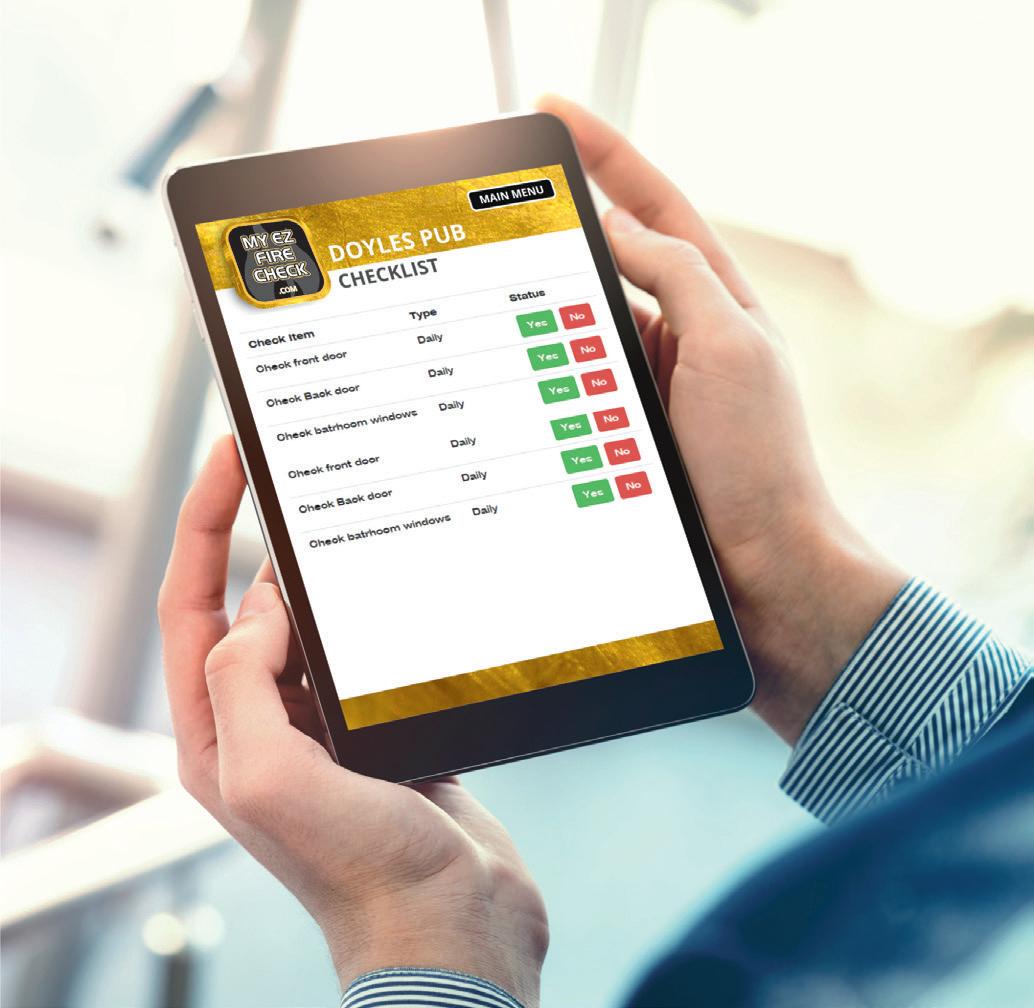
Fire Check’s use of tag technology. Checklist items will only be checked off when the device scans the tag located in a specific physical location. So far, reaction to the new innovation has been extremely positive. “Everyone we’ve spoken with has been really interested, especially once they’ve seen the app in action. We’re already working with well-known names in the bar and hotel industry including the Charlie Chawke Group, the Camden Court Hotel and parts of the Press Up Group. Only recently we met with reps of a nationwide retail brand,” says Padraig. “We’ve just updated our website (www.myezfirecheck.com) and the analytics data shows that there’s demand for the product across the board.”
CAFÉ EN SEINE PRESENTS WOMEN & WHISKEY VOLUME 2
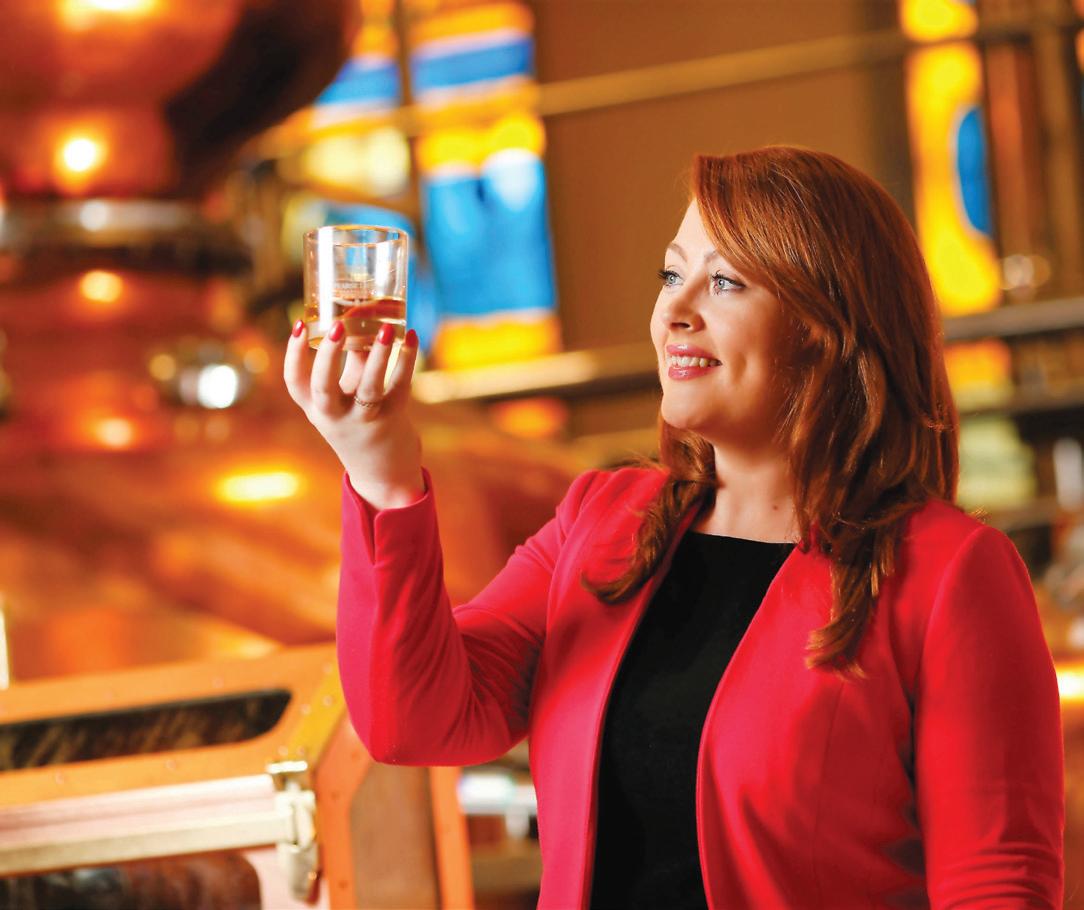
Returning for a second edition, Café en Seine will host Women & Whiskey Volume 2 on March 11th. Once again, a number of women who are leading the charge in the whiskey industry in Ireland have been invited to join a fun and frank panel discussion, all while putting their respective distilleries in the spotlight. Guests this year include Caroline Martin, Master Distiller at Roe & Co, who has spent the last 33 years working in the whiskey industry with Diageo. Joining Caroline on the panel is Bronagh Kelly, Vathouse Technician at Midleton Distillery and Tracey Flinter, General Manager at the Pearse Lyons Distillery.
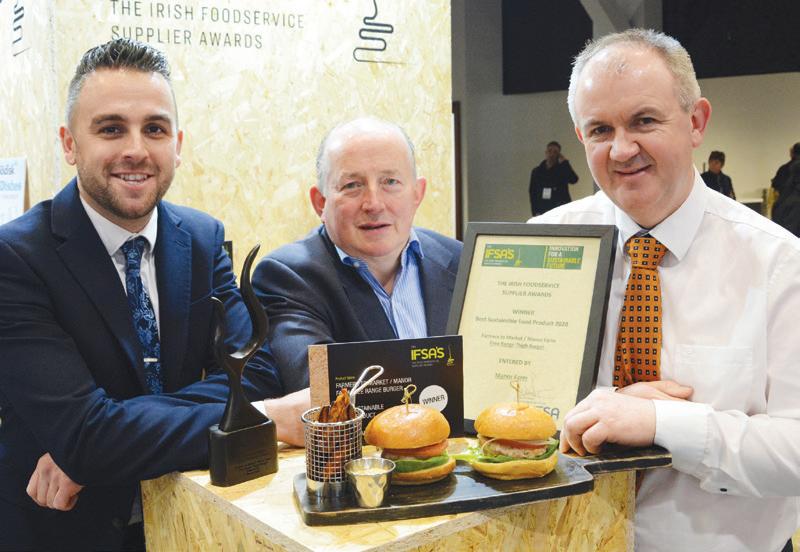
Irish chicken producer Manor Farm has won the IFSA Best Sustainable Food Product Award 2020 at The Irish Foodservice Suppliers Alliance (IFSA) awards. The company was awarded for its ‘Farmers to Market’ Free-Range Chicken Thigh Burgers. Farmers to Market is open to producers and suppliers, with food products produced in a manner that protects and enhances the natural environment and the local community. Commenting on the winning burgers, the award’s judges said: “The winner took a well-known food material and re-imagined it whilst working closely with their own suppliers in a strong and environmentally friendly manner, with very strong community support. The simple chicken thigh has a new life.”
More than 15,000 new hotel rooms are being planned for Dublin over the next three to five years, almost doubling the city’s current capacity. According to an article in The Irish Times, 100 new hotels or guest accommodation developments are either already in construction or working their way through the planning process. The Mayson Hotel, next to the new Central Bank building and close to developer Johnny Ronan’s Salesforce Tower at North Wall Quay, was recently opened by Press Up Entertainment Group. The Group is also involved in the delivery of a new 213-bedroom hotel as part of its wider development of the Clery’s Quarter on O’Connell Street. Fáilte Ireland is forecasting a need for 5,000 new rooms by 2021. It estimates each 200-bed hotel creates tourism revenue of €9 million and contributes €2 million to the exchequer per annum. “After almost a decade of inactivity, a strong pipeline of new hotel accommodation stock is expected to improve tourism capacity pressures in Dublin. Ireland got caught in a situation where it was losing business because there wasn’t enough hotel capacity in the capital, particularly to cater for the lucrative conferences and events business tourism sector,” a Fáilte Ireland spokesperson said.
Chinese hotels and restaurants a ected by coronavirus
The impact of the coronavirus is being felt by restaurants, hotels, cinemas, shops and transport providers across China. The timing of the health crisis, during the lunar New Year break, also means these industries have been particularly exposed to commercial losses. The New Year holiday was extended for a few days by the national Chinese authorities and there have been longer extensions imposed by some provincial authorities, delaying the return to work for some businesses even longer. It’s expected that any delay resuming production and selling goods is likely to lead to cash-flow problems, especially for smaller operations. International retailers have also closed operations in China, including Starbucks and Ikea. Several overseas airlines have stopped flights to China and international hotel chains have been o ering refunds.
Unlocking IRELAND’S TOURISM POTENTIAL
Stephen McNally, Dalata Hotel Group, Jenny De Saulles, Fáilte Ireland’s Director of Sector Development, Paul Kelly, CEO, Fáilte Ireland and Howard Hastings, Hastings Hotel Group
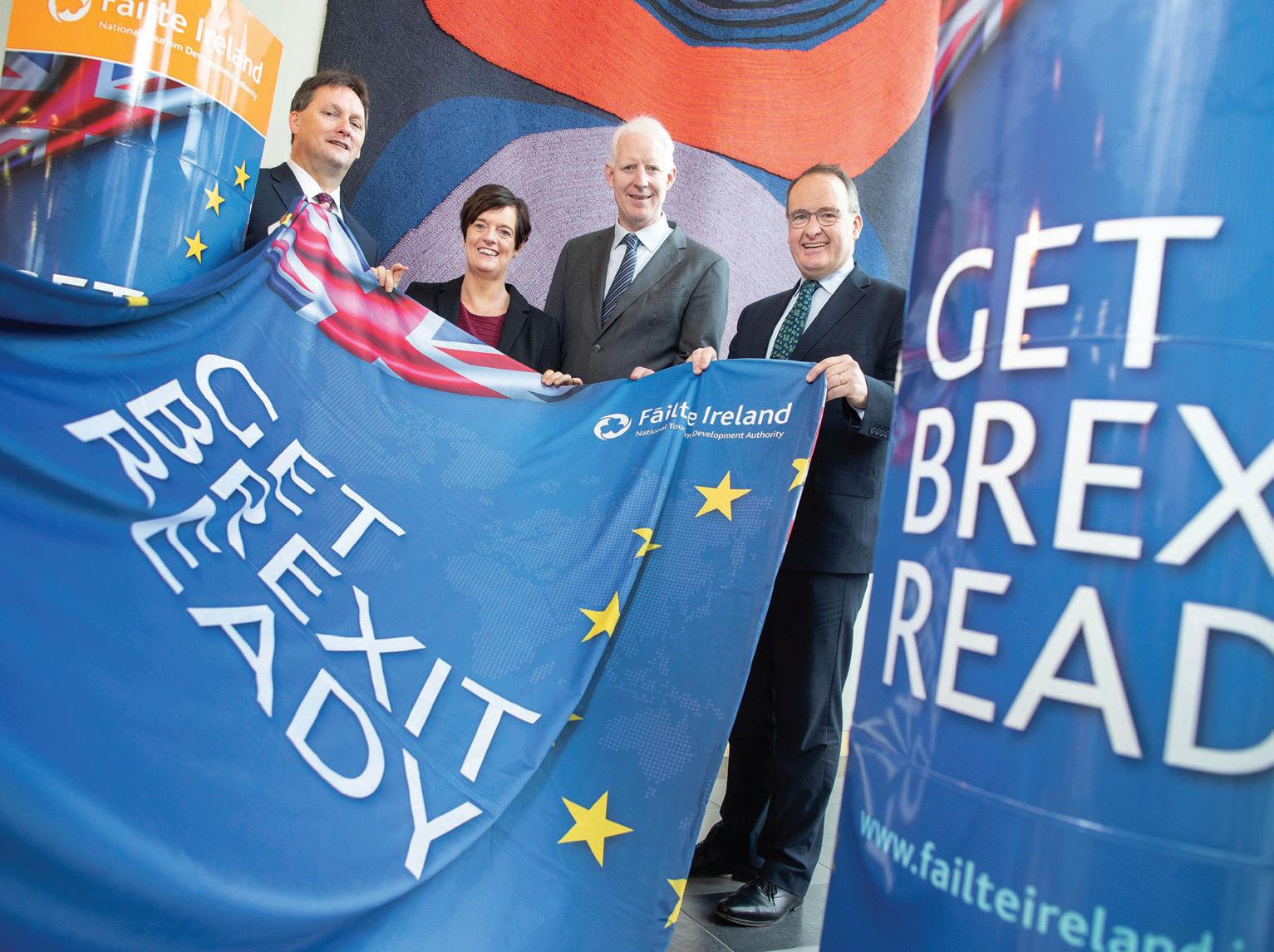

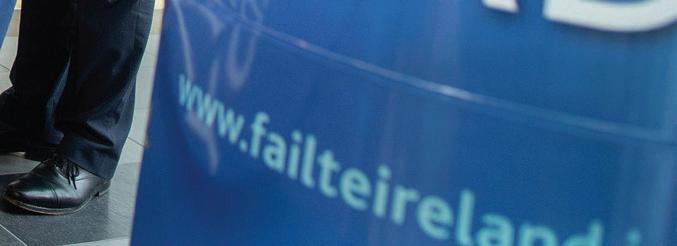
Next steps for Brexit
Fáilte Ireland’s Brexit Advisory group convenes
Fáilte Ireland recently convened a meeting of its Industry Brexit Advisory Group at its headquarters in Dublin. CEOs and senior representatives from businesses and organisations working across the tourism industry gathered to discuss their concerns and plan the next steps in dealing with the impact of Brexit on the tourism sector. Jenny De Saulles, Fáilte Ireland’s Director of Sector Development, said: “Brexit certainty for 2020 has o ered some short term clarity that has helped businesses to plan better, but there is no room for complacency as the future implications of Brexit and what happens after the transition period ends at the end of this year remain major concerns for the sector. While we wait for clarity on the operational specifi cs of Brexit to fully understand its impact and any potential disruption, Fáilte Ireland will be delivering a range of supports designed to build resilience in the tourism industry. We’re working with businesses in assessing the risks, improving their channel mix and retaining business from Northern Ireland and the UK while equipping them with the knowledge, expertise and tools to diversify into other markets.”
Find out how Fáilte Ireland can help your business respond to Brexit at www.failteireland.ie/supports
Martin Donnelly, Fáilte Ireland with Siobhan O’Sullivan, Mount Juliet Estate
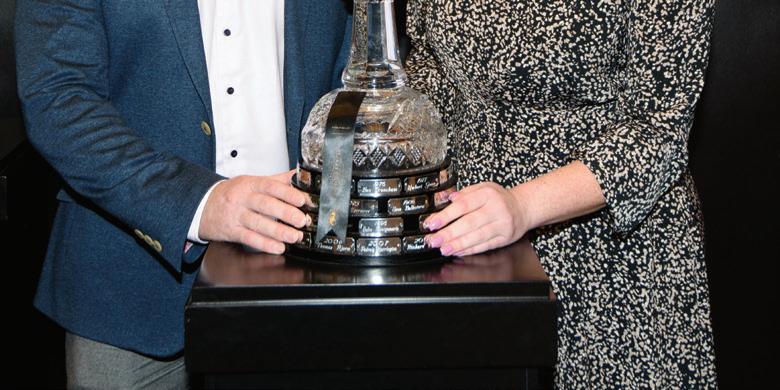
TEEING IRELAND up for more golf visitors from Northern Ireland
Golf tourism is a hugely lucrative sector for Ireland and a key driver of visitors. Annually more than 221,000 overseas visitors play golf, which contributes almost €300 million to the Irish economy and accounts for over 1.9 million bed nights. As part of Fáilte Ireland’s strategy to attract more players from Northern Ireland, the National Tourism Development Authority recently showcased some of Ireland’s fi nest golf courses at its annual ‘Golf Ireland Promotion Night’ in Belfast.
Over 40 golf courses from across the Wild Atlantic Way, Ireland’s Ancient East, Ireland’s Hidden Heartlands and Dublin, pitched directly to over 400 players, societies and clubs from across Northern Ireland.
Paul Mockler, Head of Commercial Development at Fáilte Ireland, said: “Golf is a critical component of our strategy to grow and retain visitors from the Northern Irish market, especially in the face of Brexit. By hosting events such as the ‘Golf Ireland Promotion Night’, Fáilte Ireland is o ering golf courses throughout Ireland a highprofi le sales platform where they can promote their quality courses directly to this attentive and lucrative market.”
Mount Juliet Estate, as the host venue of the 2020 Dubai Duty Free Irish Open in May, was one of the courses attending the Golf Ireland Promotion Night.
Pat Slattery and Marie Phelan, Tipperary County Council, Des Murnane, historian and Justine Carey, Fáilte Ireland
Bringing Tipperary’s History to life in Ireland’s Ancient East
Fáilte Ireland recently launched an expansion of its Historic Towns Trail initiative in Tipperary. The initiative, in partnership with the Tipperary local authority and local historian Des Murnane, will showcase the stories behind the historic town of Tipperary through modern and newly updated Historic Towns Trail signage, designed to share the stories that shaped the town’s history with visitors.
The Historic Towns Trails are designed to encourage visitors to stay longer and explore the wider region. Tipperary Town is the latest location in Ireland’s Ancient East to have the new signage installed with a further two towns, Fethard and Cashel, set to benefi t over the coming months. Working with local authorities and historians, Fáilte Ireland has uncovered interesting and lesser known facts and stories from each area’s history. Content is displayed through wayfi nding, interpretation, photography and maps at key locations across each town.
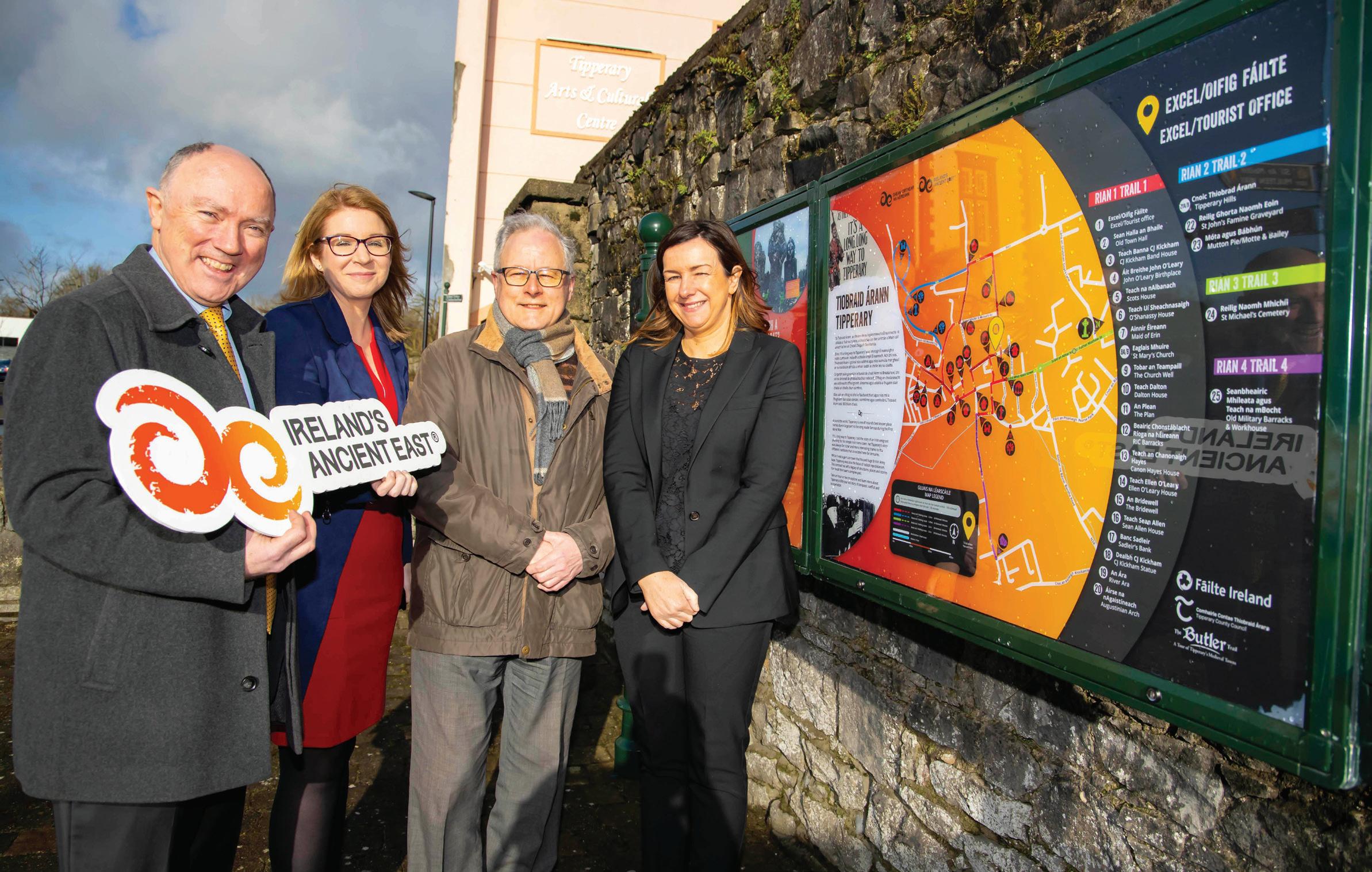
BUSINESS TOURISM IS BIG BUSINESS FOR IRELAND
A total of 524 international conferences and business events worth €212 million to the Irish economy were secured by Fáilte Ireland’s Business Tourism and Events team last year. Final fi gures for 2019 versus 2018 show a growth of +4% on business wins which will help “drive economic growth in Dublin and across the regions,” according to Fáilte Ireland CEO Paul Kelly.
“€47million of this business has been won for regional Ireland through our work with the Regional Convention Bureaux in Galway, Kerry, Cork and Shannon. These wins will signifi cantly add to and support the work we are doing with industry on the ground developing tourism and growing revenue and employment across Ireland. Business tourism is big business and is now worth at least €740 million to the Irish economy, directly supporting 20,000 jobs. We have set ambitious targets to grow business tourism during the next fi ve years to bring its value to the Irish economy over the €1 billion mark,” stated Paul Kelly. Ireland was recently announced as the location for next year’s ‘SITE Global Conference’ taking place in early February. SITE – Society for Incentive Travel Excellence – will bring 600 influential professionals to Ireland for three days in 2021. This conference will be worth in the region of €1.1 million to our economy.
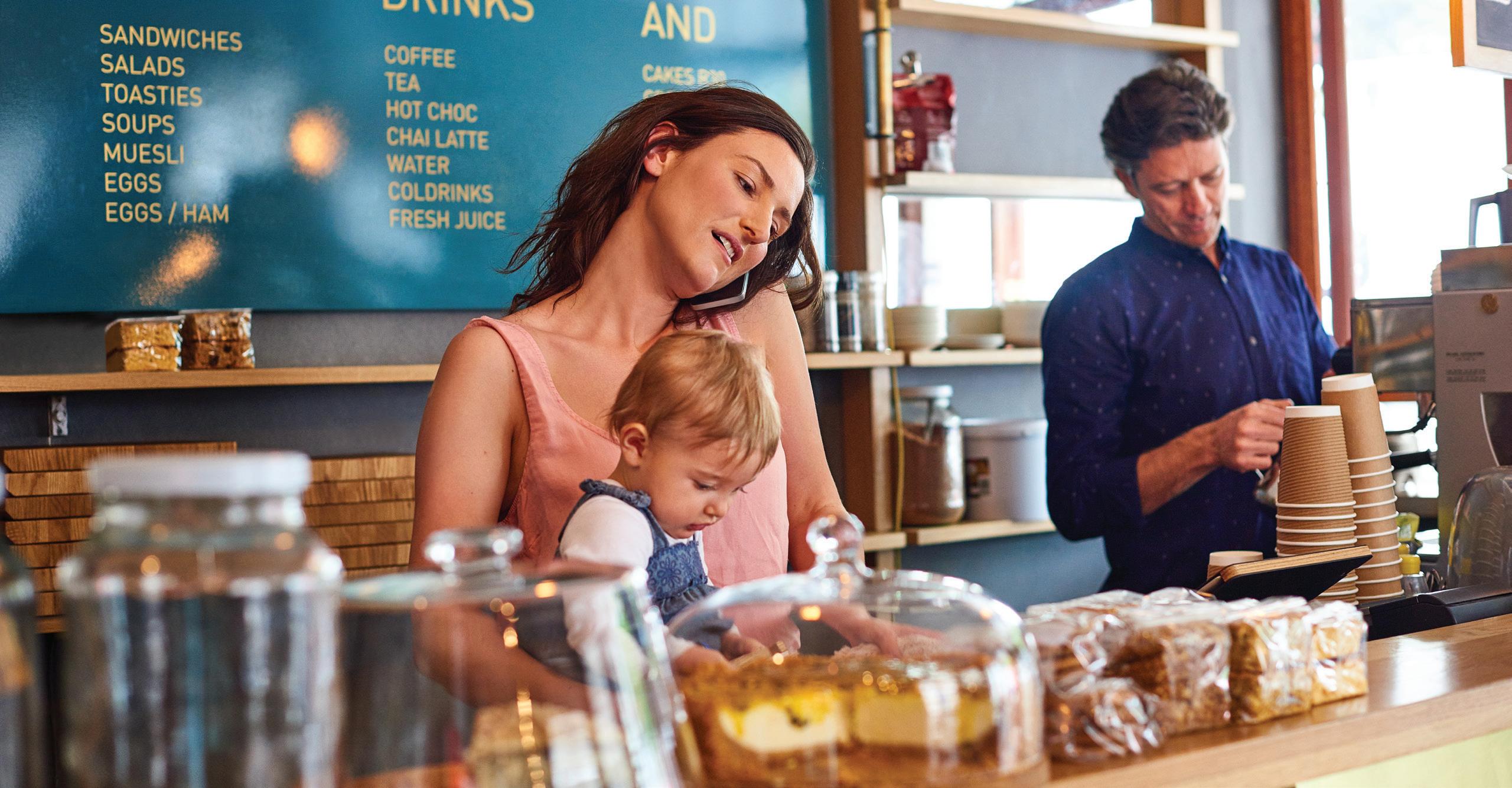
The 2020 Energia Family Business Awards are open for entries. Now in their second year the awards celebrate showcase the best of Irish family businesses throughout the 32 counties of Ireland.
Visit our website today to enter the awards www.familybusinessawards.ie
For all queries contact Michael O’Donoghue, Event Manager e: michael.odonoghue@ashvillemediagroup.com t: 01 432 2224
Thank you to our
2020 Sponsors
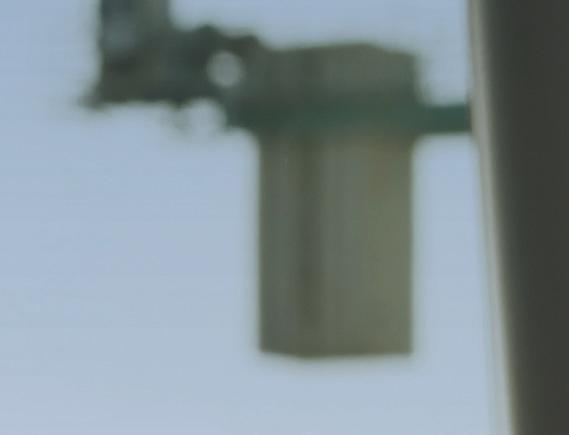
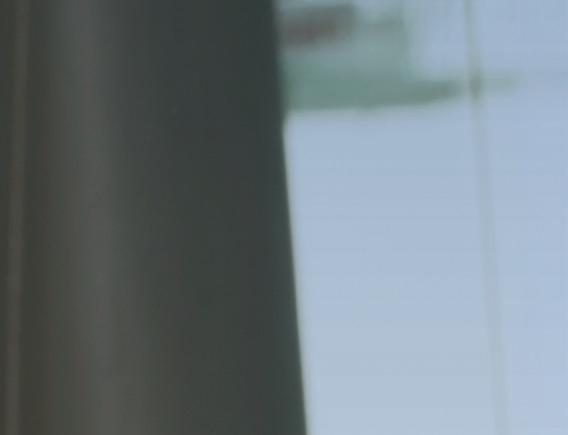
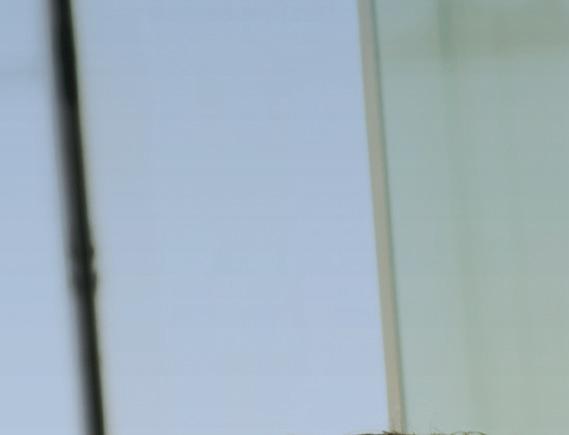

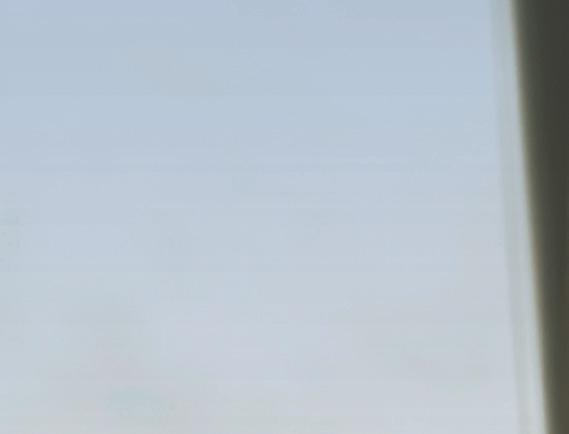
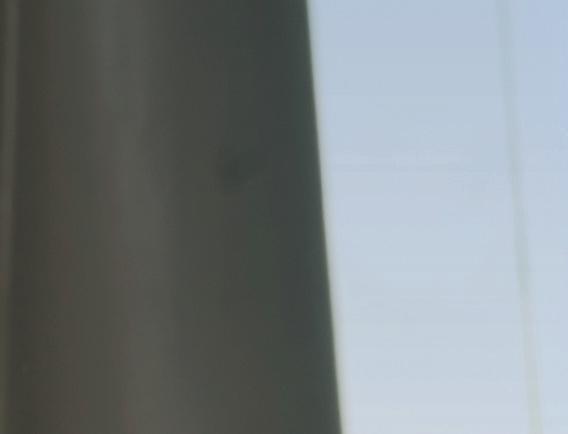

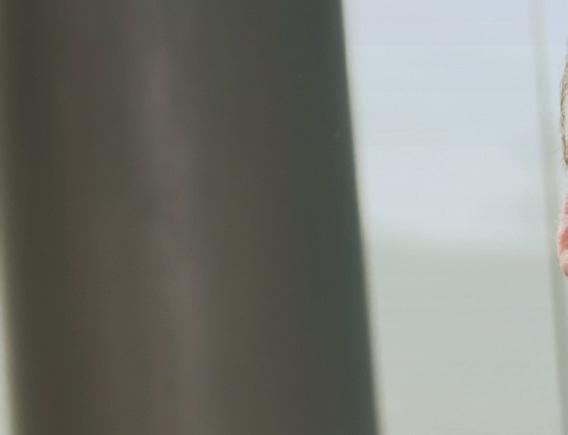
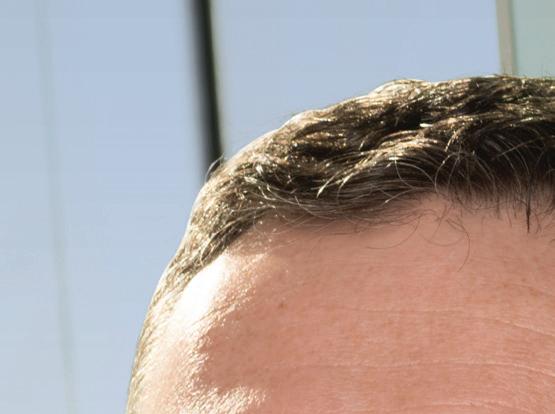
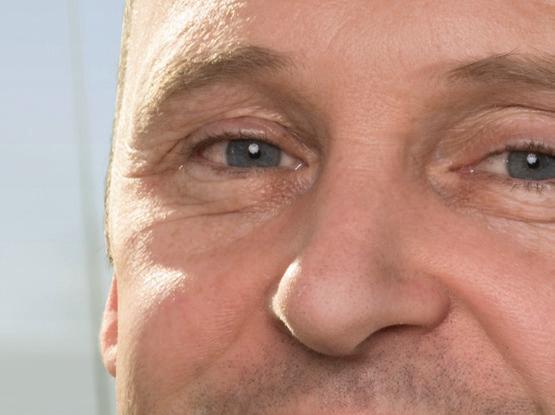
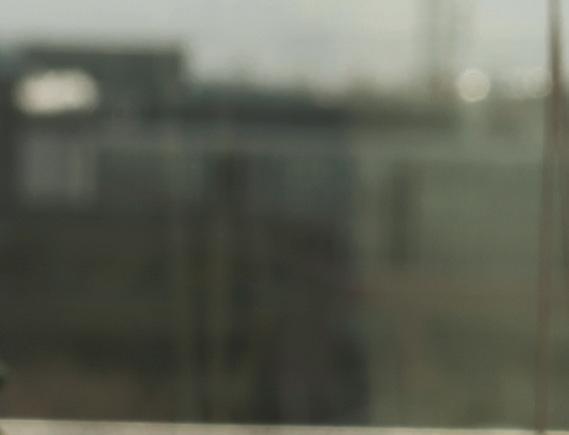
future Naturgy is supplying hotels all over the country with its renewable energy solutions. So what di erentiates Naturgy from other energy providers? for the energy
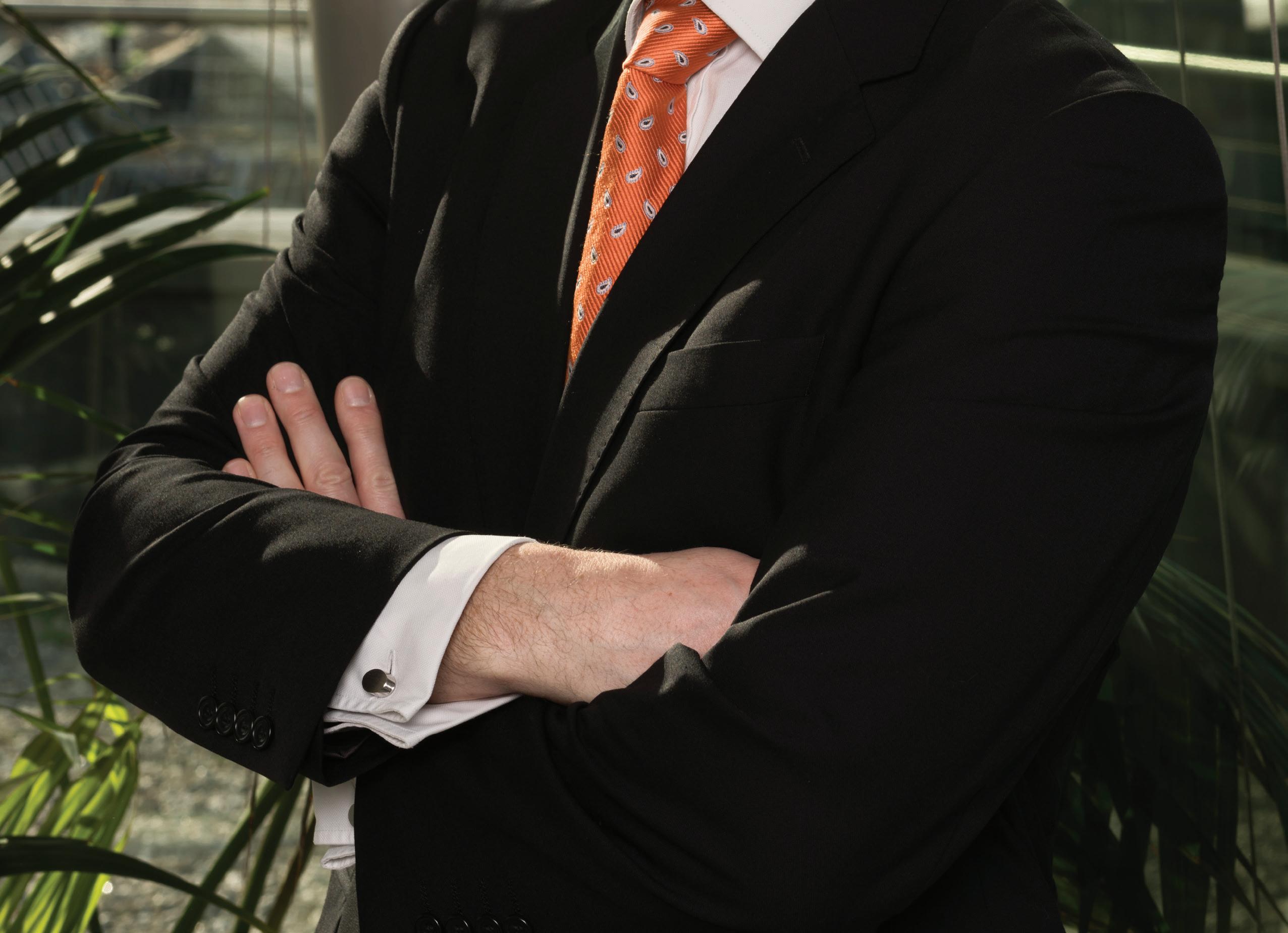
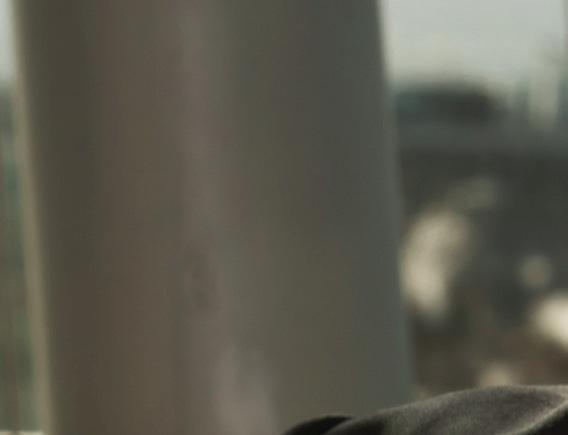
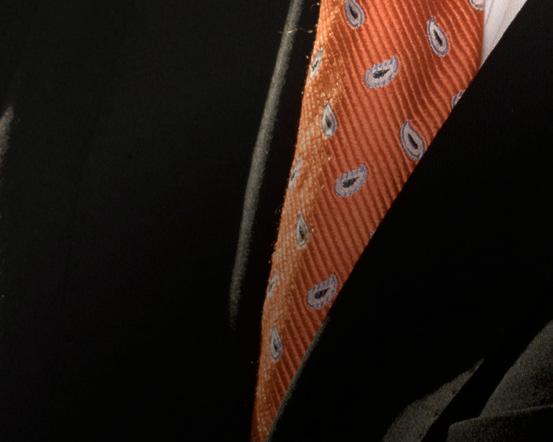
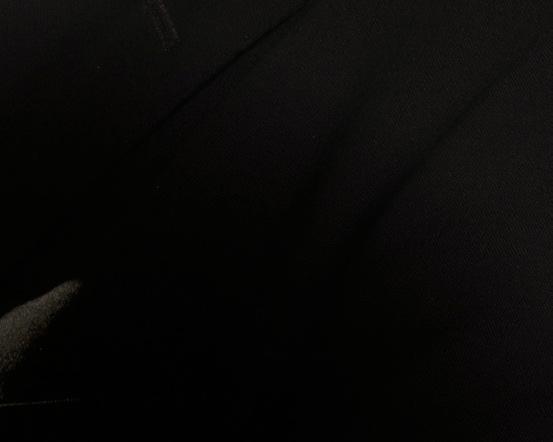
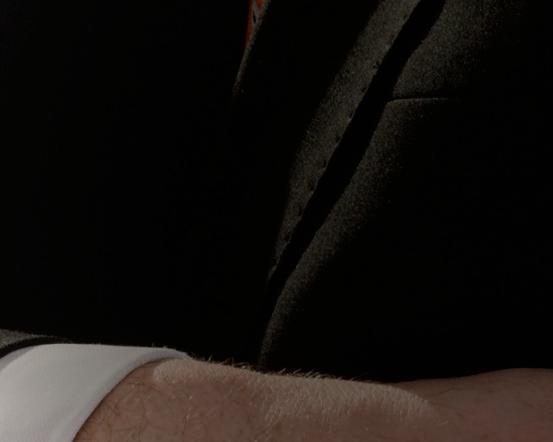

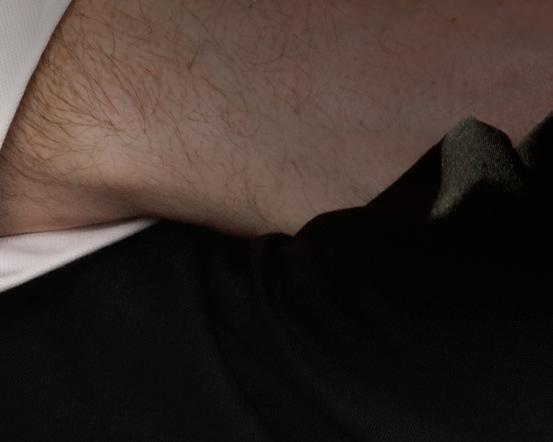
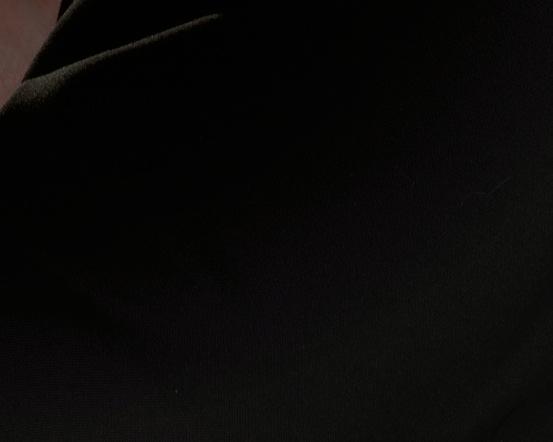
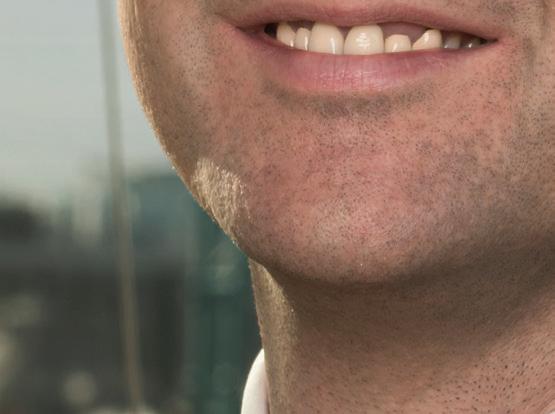

Choosing
the right energy solution for your business can be tricky. Although cost is and must be the overriding consideration, sustainability has also been pushed to the top of the wants list, with guests keen for reassurance that their hotel of choice is committed to a green agenda.
Naturgy, which has been operating in the Irish energy sector since 2004, isn’t your typical energy services provider. From its inception, the company has focused on ensuring its customers use less energy, more efficiently. Rather than describing itself as a utility, Naturgy considers itself a services company. “That distinction is actually very important. It means that we strive to develop a relationship with our customer and
Liam Faulkner, CEO, Naturgy
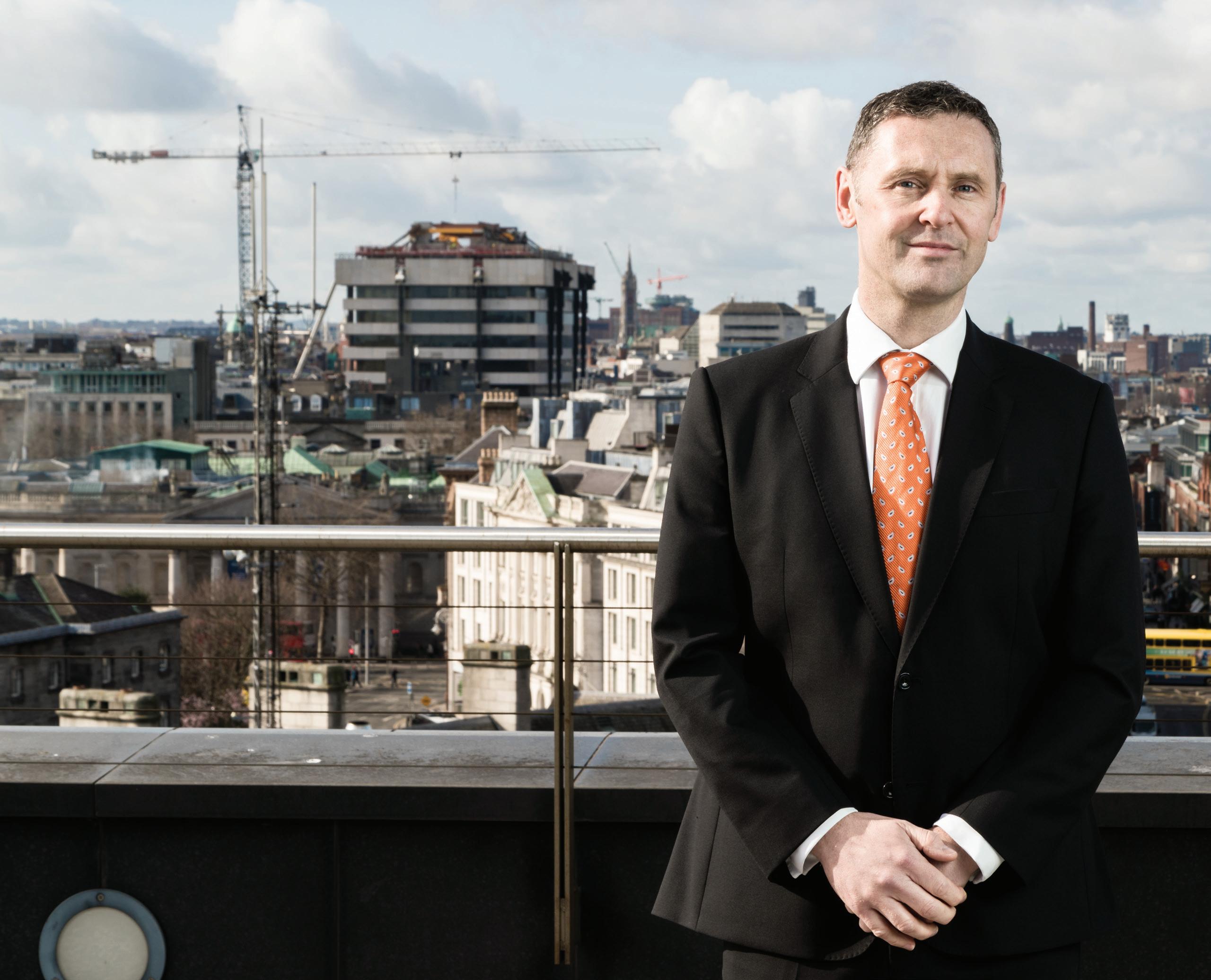
to understand and know their business and priorities. Fundamentally, our business model is about agility, being flexible and offering unique services and products for our customers,” said Liam Faulkner, CEO at Naturgy. It’s an interesting, customer-centric approach that has made the company a go-to energy service provider for hotels across the country.
Naturgy started life as a supplier of natural gas before gradually expanding into the electricity market. A couple of years later, that became 100% renewable electricity. Today, customers include industrial and commercial businesses, such as Bulmers, DAA, Irish Rail, Virgin, Debenhams, eir and

Paul McCarthy
Celtic Linen and of course the hotel industry. From five star hotels to smaller establishments, Naturgy has a solution for every business.
To provide the best possible service, Naturgy monitors the energy consumption of most of the hotels that it supplies to. “For some of our hotels, we have developed benchmarking along different metrics such as energy consumption per room or per square metre. Right now, we’re looking at developing an index and rolling that out to the hotel sector in general; this would involve monitoring energy consumption of hotels all over the country and would allow us to compile what we refer to as league tables.” These “league tables” would demonstrate to hotels how they operate in terms of efficiency and performance. “They would give hotels the opportunity to investigate why their energy consumption is more than their peers or competitors. We do a lot of work with third parties that have specialist energy engineering competence and these companies could then help identify where improvements can be made. Essentially, we’ll be offering a turnkey package.” This concept of league tables could become a valuable tool for hotels to benchmark themselves against and with sustainability becoming a top priority for guests, a tool like this could be invaluable. For more information, contact: mary.rossiter@naturgy.ie
When it comes to the electricity that Naturgy supplies, 100% of it is renewable. “We were the first company to move towards 100% renewable energy and we are now working hard at finding ways to replace natural gas with biomethane, a renewable source of gas. I think that will be the next big thing. We’re currently in the process of negotiations around some of the first biomethane plants in the country. They will hopefully be coming on stream over the coming months.” Regardless of the type of energy the company supplies, cost will remain a key consideration. “We advise our customers to ensure they’re buying and paying for their energy at the lowest possible price. That’s of course essential for hotels, some of whom will have higher energy costs than others. Hotels that have swimming pools or gyms will have a different energy requirement and we tailor our offering to those premises. We help our customers by taking advantage of forward contracts in the energy wholesale markets so they can lock in prices today for up to five years hence.” Liam and the Naturgy team consider energy as a risk to be managed and along with cost, another element of that is only using the energy that has to be used. “We try very hard to make sure our customers are using energy in an efficient manner. Obviously we make money by supplying energy and we make more if we supply more, but ensuring our customers use the least amount of energy is actually very consistent with our business model which is focused on customer service and relationships.” It may sound counter intuitive, but it’s consistent with Naturgy’s business model and its values that have been driving the company since 2004. “That makes for long term customer satisfaction and loyalty. To put it simply, our message to customers is, we help you reduce, go green and save money.”
Some of Naturgy’s customers have been with the company for over 10 years. “We have a very high retention rate of over 85%. When our customers join Naturgy, they stick around. Also, we found from one of our recent surveys that 88% of our customers would recommend us to another company. From the very start, we’ve understood that the way to have a better conversation with our customer is to continuously educate them about the energy industry.”
With over 16 years in the energy industry under its belt, Naturgy is no stranger to adaptation, says Liam. “Energy supply has got to be among the least innovative industries in the world but change is coming. Society and consumers now expect a drive towards renewables and they expect more accountability from us as their supplier. When it comes to our competitors, I think we’ve got the advantage; Naturgy Ireland doesn’t have any legacy investment in physical infrastructure to worry about. We’re not resistant to the change that is expected by us from the market and we’re actually embracing it by helping customers reduce their energy.”





